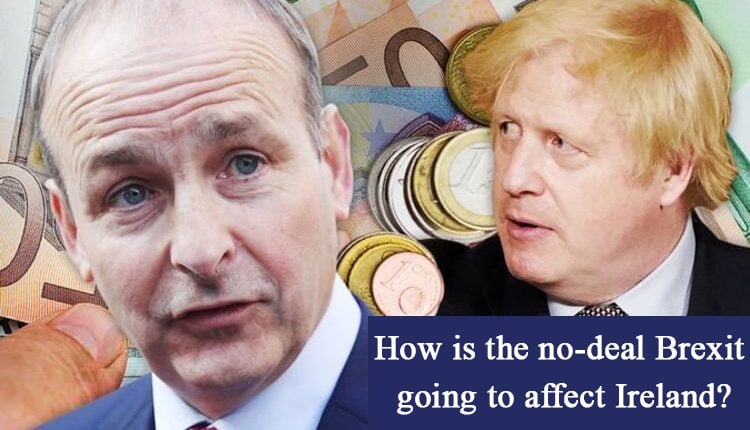DUBLIN: Post-Brexit ‘sorrows’ are now the talk of Ireland. Negotiations with Britain to reach a trade deal are also underway, but there is no optimism. But if a trade agreement is not possible, it is of great concern how its consequences will affect Ireland.
The assessment is that there will be problems like inflation, price hike and food scarcity. Overall, a no-deal Brexit will have a decisive impact on the Irish economy.
The Irish Fiscal Advisory Councill estimates that Irish GDP will shrink by 6% (€21 billion) in the long run. The government’s contingency plan estimates that 55,000 people could lose their jobs.
At the same time, it is reassuring that the central bank has said that one lakh jobs will be created in the economy. However, it is important to note that a no-deal Brexit is coming at a time when the economy is already under severe pressure from COVID-19.
Brexit and severely affected areas
Experts point out that there are at least four areas where Irish business and economy could be severely affected. They can be summarized as follows:
Biggest impact on exports
Experts point out that the biggest impact will be on exports. Without the deal, exports to the UK worth more than €13 billion a year would be adversely affected. The British government may impose import taxes of up to €1.7 billion.
The agri-food sector will be especially hard hit as 38% of that category of exports from Ireland ends up in the UK. Half of the cheddar cheese produced in Ireland goes to the UK. It may charge tariffs of up to 52%.Irish beef going to the UK market may fetch an average of 74% tariff. This means that the total weekly bill for Irish beef going to the UK after Brexit will be €8.5 million more than it is now. This can be very costly for British consumers.
Imports will also have tariffs
Tariffs can be levied not only on goods from Ireland but also on imports from the UK. Breakfast cereal, chocolate and processed foods can be very expensive. Ireland imports 4,000 tonnes of flour from the UK every week. As a result of the tariff imposed on it, the price of bread will increase by 15 per cent. Prices will be higher for finished products and raw materials imported from the UK for processing. The only way for manufacturers to get around this would be to source from elsewhere in the EU, but even this might come at a cost.
Direct buyers will face consequences
Consumers who buy directly from the Great Britain would have consequences. VAT and customs duty will be levied on sports goods. The sports equipment, which currently costs €167, will cost €226. Perhaps it can be expected to boost the local market.
Customs clearance
The new customs requirements will make it more difficult to ship goods in and out of Ireland. Ports in the UK and Ireland will experience large delays as customs and other documentation will have to be checked. Delivery will also slow as the cost of products arriving via the UK land bridge increases. It can also lead to the destruction of certain foods and high value pharmaceuticals.


Comments are closed.